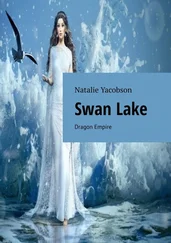Shane Legg - A Collection of Definitions of Intelligence
Здесь есть возможность читать онлайн «Shane Legg - A Collection of Definitions of Intelligence» весь текст электронной книги совершенно бесплатно (целиком полную версию без сокращений). В некоторых случаях можно слушать аудио, скачать через торрент в формате fb2 и присутствует краткое содержание. Год выпуска: 2007, Жанр: Прочая документальная литература, на английском языке. Описание произведения, (предисловие) а так же отзывы посетителей доступны на портале библиотеки ЛибКат.
- Название:A Collection of Definitions of Intelligence
- Автор:
- Жанр:
- Год:2007
- ISBN:нет данных
- Рейтинг книги:4 / 5. Голосов: 1
-
Избранное:Добавить в избранное
- Отзывы:
-
Ваша оценка:
- 80
- 1
- 2
- 3
- 4
- 5
A Collection of Definitions of Intelligence: краткое содержание, описание и аннотация
Предлагаем к чтению аннотацию, описание, краткое содержание или предисловие (зависит от того, что написал сам автор книги «A Collection of Definitions of Intelligence»). Если вы не нашли необходимую информацию о книге — напишите в комментариях, мы постараемся отыскать её.
A Collection of Definitions of Intelligence — читать онлайн бесплатно полную книгу (весь текст) целиком
Ниже представлен текст книги, разбитый по страницам. Система сохранения места последней прочитанной страницы, позволяет с удобством читать онлайн бесплатно книгу «A Collection of Definitions of Intelligence», без необходимости каждый раз заново искать на чём Вы остановились. Поставьте закладку, и сможете в любой момент перейти на страницу, на которой закончили чтение.
Интервал:
Закладка:
Technical Report IDSIA-07-07
A Collection of Definitions of Intelligence
Shane Legg IDSIA, Galleria 2, Manno-Lugano CH-6928, Switzerland (This work was supported by the Swiss NSF grant 200020-107616.) shane@idsia.ch www.idsia.ch/ ∼ shane Marcus Hutter IDSIA, Galleria 2, Manno-Lugano CH-6928, Switzerland * RSISE/ANU/NICTA, Canberra, ACT, 0200, Australia marcus@hutter1.net www.hutter1.net
15 June 2007
Abstract
This paper is a survey of a large number of informal definitions of “intelligence” that the authors have collected over the years. Naturally, compiling a complete list would be impossible as many definitions of intelligence are buried deep inside articles and books. Nevertheless, the 70-odd definitions presented here are, to the authors’ knowledge, the largest and most well referenced collection there is.
Keywords
Intelligence definitions, collective, psychologist, artificial, universal.
Introduction
“Viewed narrowly, there seem to be almost as many definitions of intelligence as there were experts asked to define it.” --- R. J. Sternberg quoted in [Gregory:98]
Despite a long history of research and debate, there is still no standard definition of intelligence. This has lead some to believe that intelligence may be approximately described, but cannot be fully defined. We believe that this degree of pessimism is too strong. Although there is no single standard definition, if one surveys the many definitions that have been proposed, strong similarities between many of the definitions quickly become obvious. In many cases different definitions, suitably interpreted, actually say the same thing but in different words. This observation lead us to believe that a single general and encompassing definition for arbitrary systems was possible. Indeed we have constructed a formal definition of intelligence, called universal intelligence [Legg:06ior] , which has strong connections to the theory of optimal learning agents [Hutter:04uaibook] .
Rather than exploring very general formal definitions of intelligence, here we will instead take the opportunity to present the many informal definitions that we have collected over the years. Naturally, compiling a complete list would be impossible as many definitions of intelligence are buried deep inside articles and books. Nevertheless, the 70 odd definitions presented below are, to the best of our knowledge, the largest and most well referenced collection there is. We continue to add to this collect as we discover further definitions, and keep the most up to date version of the collection available online [Legg:idefs] . If you know of additional definitions that we could add, please send us an email.
Collective definitions
In this section we present definitions that have been proposed by groups or organisations. In many cases definitions of intelligence given in encyclopedias have been either contributed by an individual psychologist or quote an earlier definition given by a psychologist. In these cases we have chosen to attribute the quote to the psychologist, and have placed it in the next section. In this section we only list those definitions that either cannot be attributed to a specific individuals, or represent a collective definition agreed upon by many individuals. As many dictionaries source their definitions from other dictionaries, we have endeavoured to always list the original source.
• “The ability to use memory, knowledge, experience, understanding, reasoning, imagination and judgement in order to solve problems and adapt to new situations.” AllWords Dictionary, 2006
• “The capacity to acquire and apply knowledge.” The American Heritage Dictionary, fourth edition, 2000
• “Individuals differ from one another in their ability to understand complex ideas, to adapt effectively to the environment, to learn from experience, to engage in various forms of reasoning, to overcome obstacles by taking thought.” American Psychological Association [Neisser:96]
• “The ability to learn, understand and make judgments or have opinions that are based on reason” Cambridge Advance Learner’s Dictionary, 2006
• “Intelligence is a very general mental capability that, among other things, involves the ability to reason, plan, solve problems, think abstractly, comprehend complex ideas, learn quickly and learn from experience.” Common statement with 52 expert signatories [Gottfredson:97msoi]
• “The ability to learn facts and skills and apply them, especially when this ability is highly developed.” Encarta World English Dictionary, 2006
• “… ability to adapt effectively to the environment, either by making a change in oneself or by changing the environment or finding a new one … intelligence is not a single mental process, but rather a combination of many mental processes directed toward effective adaptation to the environment.” Encyclopedia Britannica, 2006
• “the general mental ability involved in calculating, reasoning, perceiving relationships and analogies, learning quickly, storing and retrieving information, using language fluently, classifying, generalizing, and adjusting to new situations.” Columbia Encyclopedia, sixth edition, 2006
• “Capacity for learning, reasoning, understanding, and similar forms of mental activity; aptitude in grasping truths, relationships, facts, meanings, etc.” Random House Unabridged Dictionary, 2006
• “The ability to learn, understand, and think about things.” Longman Dictionary or Contemporary English, 2006
• “: the ability to learn or understand or to deal with new or trying situations : … the skilled use of reason (2) : the ability to apply knowledge to manipulate one’s environment or to think abstractly as measured by objective criteria (as tests)” Merriam-Webster Online Dictionary, 2006
• “The ability to acquire and apply knowledge and skills.” Compact Oxford English Dictionary, 2006
• “… the ability to adapt to the environment.” World Book Encyclopedia, 2006
• “Intelligence is a property of mind that encompasses many related mental abilities, such as the capacities to reason, plan, solve problems, think abstractly, comprehend ideas and language, and learn.” Wikipedia, 4 October, 2006
• “Capacity of mind, especially to understand principles, truths, facts or meanings, acquire knowledge, and apply it to practise; the ability to learn and comprehend.” Wiktionary, 4 October, 2006
• “The ability to learn and understand or to deal with problems.” Word Central Student Dictionary, 2006
• “The ability to comprehend; to understand and profit from experience.” Wordnet 2.1, 2006
• “The capacity to learn, reason, and understand.” Wordsmyth Dictionary, 2006
Psychologist definitions
This section contains definitions from psychologists. In some cases we have not yet managed to locate the exact reference and would appreciate any help in doing so.
• “Intelligence is not a single, unitary ability, but rather a composite of several functions. The term denotes that combination of abilities required for survival and advancement within a particular culture.” A. Anastasi [Anastasi:92]
• “… that facet of mind underlying our capacity to think, to solve novel problems, to reason and to have knowledge of the world." M. Anderson [Anderson:06]
• “It seems to us that in intelligence there is a fundamental faculty, the alteration or the lack of which, is of the utmost importance for practical life. This faculty is judgement, otherwise called good sense, practical sense, initiative, the faculty of adapting ones self to circumstances.” A. Binet [Binet:1905]
Читать дальшеИнтервал:
Закладка:
Похожие книги на «A Collection of Definitions of Intelligence»
Представляем Вашему вниманию похожие книги на «A Collection of Definitions of Intelligence» списком для выбора. Мы отобрали схожую по названию и смыслу литературу в надежде предоставить читателям больше вариантов отыскать новые, интересные, ещё непрочитанные произведения.
Обсуждение, отзывы о книге «A Collection of Definitions of Intelligence» и просто собственные мнения читателей. Оставьте ваши комментарии, напишите, что Вы думаете о произведении, его смысле или главных героях. Укажите что конкретно понравилось, а что нет, и почему Вы так считаете.












